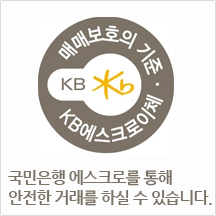15 Strange Hobbies That Will Make You Better At Buy Fakes
페이지 정보

본문
The Reality of Buying Fakes: Understanding the Risks and Implications
In today's consumer-driven society, the attraction of counterfeit items is more potent than ever. From designer purses to electronics, many people discover themselves lured by the relatively attractive costs of these knockoff items. However, the ramifications of purchasing fakes extend beyond simple economics; they encompass legal, ethical, and social dimensions that customers frequently overlook. This article aims to offer a thorough understanding of the phenomenon of purchasing counterfeit goods, checking out the dangers associated with it while attending to typical concerns surrounding the topic.
What Are Counterfeit Products?
Counterfeit products are replica items that are created to look like and trick consumers into believing they are purchasing authentic products. They are normally produced without the consent of the original brand name owner and typically sold at a portion of the price of real items. Counterfeiting can take place across various industries, including style, electronics, cosmetics, and pharmaceuticals.
Types of Counterfeit Products
Luxury Goods: High-end style products, gefälschte währung bestellen accessories, and charm items prevail targets for counterfeiters. Fakes may consist of replica designer bags, shoes, and clothing.
Electronics: Counterfeit electronics, consisting of smart devices and laptops, may lack the quality and dependability of real posts, putting users at risk.
Pharmaceuticals: Fake medications pose a severe risk to public health, as they might include damaging active ingredients or lack efficacy.
Software application: qualitatives euro falschgeld kaufen bestellen (https://rentry.co) Pirated software application can jeopardize user security and breaches copyright rights.
The Allure of Buying Fakes
Cost Savings
One of the primary factors customers go with counterfeit products is the cost distinction. For those on a budget, reproductions might appear as an attractive alternative to the high rate tags of original products.
Availability
Counterfeit goods are typically more accessible than genuine items, specifically for classes of individuals who can not pay for high-end brand names. The rise of online markets has actually made counterfeit products even easier to find and buy.
Social Acceptance
In some circles, owning a counterfeit designer item can work as a status symbol, albeit a questionable one. This practice can promote a culture where brand name representation takes precedence over authenticity.
The Risks of Purchasing Counterfeit Products
While the instant temptation to buy fakes may seem appealing, the repercussions can be significant:
1. Legal Consequences
The production and sale of counterfeit goods are unlawful in a lot of nations. Purchasing counterfeit items can expose consumers to potential fines, legal action, or confiscation of unlawful items.
2. Quality and Safety Concerns
Counterfeit products normally undergo lax production requirements. They may be made from inferior materials, posturing dangers such as bad efficiency or safety threats. For example, counterfeit electronics might get too hot or malfunction, resulting in possible injuries.
3. Ethical Implications
Purchasing fake items supports unethical business practices. Counterfeit production adds to the exploitation of workers, typically including questionable labor practices, child labor, and substandard working conditions.
4. Damage to Brand Integrity
The proliferation of fake products undermines the hard work and innovation of genuine brands. Brand name owners face erosion of credibility and profits due to counterfeiters profiting at their cost.
Frequently Asked Questions (FAQs)
Q: Are there any legal repercussions for purchasing counterfeit goods?
While laws differ by country, purchasing counterfeit items can in some cases bring implications such as fines or confiscation of items. It's vital to understand the legal structure in your area.

Q: How can I determine counterfeit items?
Try to find:
- Misspellings: Check product labels for disparities.
- Quality Differences: Authentic goods often have higher quality finishing and products.
- Cost Too Good to be True: If the price is considerably lower than the marketplace value, it may be a red flag.
Q: What should I do if I accidentally buy a counterfeit product?
If a customer understands they have bought a counterfeit item, they must:
- Cease Use: Stop using the product to avoid security risks.
- Report: Notify the platform or seller, and report the counterfeit to the proper authorities as needed.
Q: Can I report counterfeit sellers?
Yes, customers can frequently report counterfeit products to various online marketplaces, local law enforcement, and appropriate authorities, such as the International AntiCounterfeiting Coalition.
Alternatives to Buying Fakes
If people find themselves drawn to counterfeit items, Falschgeld Kaufen Forum thinking about options may be better:
1. Thrift Shopping: Purchasing pre-owned genuine items is a sustainable alternative. Thrift shops, consignment shops, and online pre-owned platforms can provide genuine items at lowered costs.
2. Sales and Discounts: Keep an eye out for sales, promos, and clearance occasions used by legitimate brands.
3. Budget friendly Alternatives: Many companies offer economical alternatives that catch similar looks without compromising brand name integrity.
4. Do it yourself Projects: For those with imaginative skills, making individualized products can be a pleasurable and unique option to buying fakes.
The decision to acquire counterfeit products might appear useful on the surface, however the multifaceted threats included-- from legal repercussions to ethical issues-- must be carefully thought about. In a world significantly focused on sustainability and credibility, consumers have the power to choose that reflect their worths by selecting authentic products or sustainable alternatives. By cultivating awareness about the implications of such purchases, society can work towards a more ethical consumer culture that focuses on quality, security, and integrity.
- 이전글자연의 아름다움: 산과 강의 풍경 25.09.24
- 다음글마음의 소리: 감정을 표현하는 예술 25.09.24
댓글목록
등록된 댓글이 없습니다.


